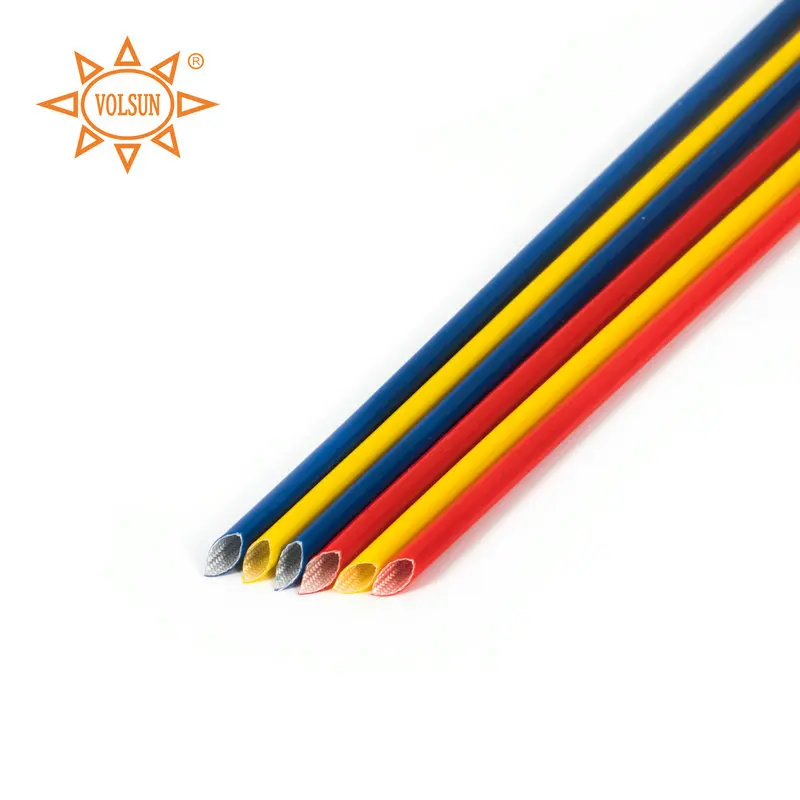Fiberglass Sleeves, Epoxy Coatings & Tapes Which One Offers the Best Protection
There are several choices that we can consider for wire and cable protection, including fiberglass sleeves, epoxy coatings, and tapes. Each of them has its own method of protecting wires. But how do we know which is the best one for us? Let’s examine each option to see what they provide and what may best meet our needs.

Which One Lasts Longer?
Duration is key in terms of wire and cable protection. We want to ensure that whatever we select will endure varying conditions. Silicone Potting Compound are extremely strong and are known for their long-lasting durability. They resist damage from heat, chemicals, and scratches. This makes them ideal for many scenarios. However, epoxy coatings are also durable. Another crucial factor is that they form a protective barrier that prevents the ingress of water and harmful substances. But tapes may not last as long as fiberglass sleeves or epoxy coatings. Tapes can lose their sticky qualities and need to be replaced more frequently, which can be annoying.
Fibreglass Sleeving, Epoxy Coatings and Tapes
Now let’s discuss about what options we have in protecting those wires and cables. Each of these options has its own merits. Electrical Insulation Products for instance, are flexible and easy to use. That means they can squeeze into all sorts of spaces and situations, making them ideal where you need something to flex or bend. So while epoxy coatings provide a seamless shield. This means it has no seams, no water or chemicals can only seep through, making it an ideal choice in difficult environments. Tapes: are very useful, easy to use. They can be quickly wrapped around wires. But, they are not as protective as fiberglass sleeves or epoxy coatings.
What Are Fiberglass Sleeves, Epoxy Coatings and Tapes?
Let’s look a little closer at what these materials consist of. Thermal Conductive Products are made with woven fiberglass fibers. After this, the fibers are coated in silicone, acrylic, or polyurethane resin to thinly coat them to insulate and protect its wires and cables. These elements work together to protect the wires from being damaged. Epoxy coatings are made up of epoxy resin mixed with a hardener. When this mix cures, it turns into a hardy layer that shields the wires beneath it. For example, tapes can be made of vinyl, rubber, or silicone. These are used to cover the wires and cables to prevent them from moisture and scratches. Different materials have different advantages.
Fiberglass Sleeves vs Epoxy coatings vs Tapes
When it comes to options like fiberglass sleeves, epoxy coatings and tapes, you really need to consider what best suits your specific application. Fiberglass sleeves are an ideal option for providing strength and flexibility at the same time. They are flexible and can contort into small spaces while still keeping wires safe. They offer excellent moisture and chemical resistance, which is why these coatings are well-suited for harsh environments where wires may be exposed to abrasive conditions. Tapes are easy to use in a lot of different situations, but you have to remember that they may not provide as much protection as fiberglass sleeves or epoxy coatings.
Which is Best for You?
To sum up, fiberglass sleeves, epoxy coatings, and tapes each have unique benefits for protecting wires and cables. If you want flexibility and durability, for example, you might choose fiberglass sleeves. Epoxy coatings are great if you require heavy-duty protection against water and chemicals. If you’re looking for something more user-friendly, tapes may be the way to go. Whatever option you choose, keep in mind that Volsun products are made to protect your wires and cables to the fullest, keeping them safe in every environment encountered.



Comments
Post a Comment